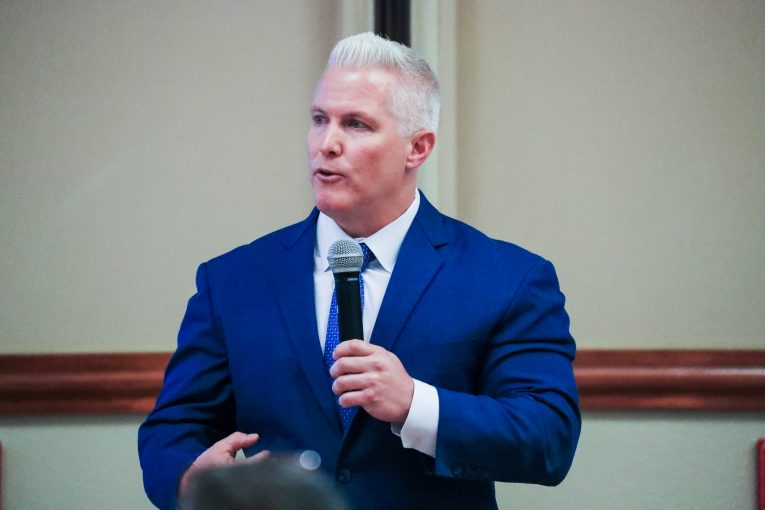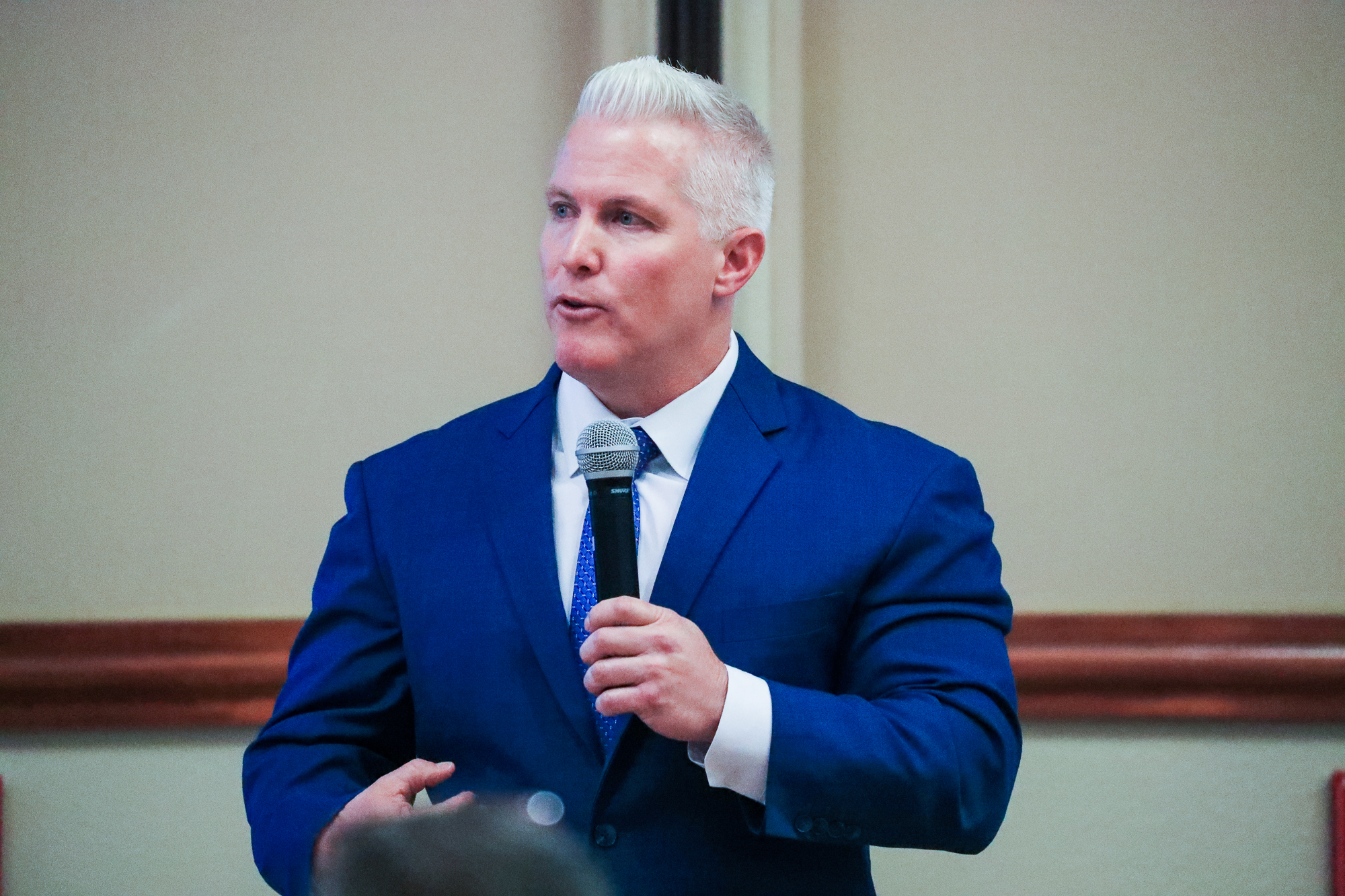
 By David M. Greenwald
By David M. Greenwald
Executive Editor
Woodland, CA – One thing that jumped out at me during the candidates’ forum in Woodland for the Yolo County DA election is how much Jeff Reisig attempted to run against San Francisco during the forum—to the point where Cynthia Rodriguez finally reminded everyone that we’re not in San Francisco.
Reisig has been attempting to thread a needle on reform during the course of the campaign. On the one hand, he has pushed his Neighborhood Court restorative justice program, his work with the Stanford program on blind charging, his work on transparency with Measures for Justice and his work on early release with For the People,
What makes his attack on the SF DA especially odd is that, this same week, Reisig touted the SF DA’s support for his DA Transparency bill sponsored by Assemblymember  Ash Kalra.
Ash Kalra.
As noted earlier this week, he even touted the support of the ACLU and DA Chesa Boudin. For instance, from his press release on AB 2418: “At the hearing on Tuesday, DA Reisig and Yoel Haile of the American Civil Liberties Union (ACLU) spoke in favor of the bill. The bill was sponsored by ACLU, Yolo County District Attorney, Prosecutor’s Alliance and San Francisco County District Attorney.”
DA Reisig said that “this has been such a fulfilling journey with input and support from the Attorney General, the ACLU, and the Public Defenders Association.”
At the same time, he refused to answer a survey from the ACLU and during the candidates’ forum, and he attacked Chesa Boudin and the SF DA’s Office repeatedly.
First Reisig said: “Look crime is bad across California right now, frankly, because there are people on the far left, progressive, I’m just going to call out San Francisco and some other places that have done things to the law, which my opponent supports, which have caused this massive wave of crime across the California. And guess what, people on all sides of the aisle are sick of it, Democrats and Republicans. That’s why you’re seeing a recall in San Francisco of this DA, and it’s a democratic city. So that’s the problem.
Later, Reisig, read a letter from Jesse Fiero, a graduate of the Yolo County Mental Health Court. “I just read an article about your opponent, Cynthia Rodriguez, in which she seems to be fixated on mental health issues. I find this ironic being as how your various diversion court programs, particularly mental health court has been so successful. At a time when progressive DAs in large California cities like San Francisco and LA have been counterproductive in their approach on both crime and compassion alike, her campaign raises some serious red flags, in my opinion.”
Reisig also defended his closeness to law enforcement, arguing that he has to work with them.
Reisig: “I’ll just point out that I am the chief law enforcement officer. That means every single day, my job is to work in collaboration with the law enforcement officers around the county. Imagine if I had a terrible relationship or if I pronounced, on day one, I’m going prosecute every one of you, it’s not gonna go very well, i.e. San Francisco, Los Angeles.”
Finally, his opponent Cynthia Rodriguez pushed back, “Each of you should look around you. Does it look like you’re in San Francisco? Are you worried about being treated like you’re in San Francisco? I’ve lived here for 30, almost 35 years. I know I’m not in San Francisco and I never talk about San Francisco or Los Angeles or Fresno or Bakersfield, that’s not where we are. And I don’t spend my days in Sacramento or driving up and down or flying up and down the state or nationally because this is where I am. This is the county. I know this is the county I care about. This is the work I want to do. This is the area that has—things can be approved, that we all need to work on. So worrying about what people in San Francisco do, it’s not really our issue here.”
Meanwhile, Reisig’s opponent Cynthia Rodriguez questioned how deep his commitment was to these reforms.
For example, while Reisig touted the success of programs like Restorative Justice and Mental Health Court, Rodriguez pointed out that there are only about 250 people per year going through Mental Health Court.
She said, “He’s also told us that 7,000 people a year are prosecuted—that’s a much lower number, the 250, than the number of people who are going through mental health problems.”
One of the things that caught my ears was an acknowledgment by Reisig that his plan for drug treatment is in fact coerced treatment.
He said it himself, “The second issue that she brings up is the treatment issue. Well, guess what? Governor Newsom’s plan includes coerced treatment. I support him. The law worked on with Assemblymember McCarty had coerced treatment, and guess what every Democrat and every Republican in Sacramento supported us.”
But as Robert Hansen has reported, at the Board of Supervisors meeting just three weeks ago, Reisig and Chief Deputy DA Jonathan Raven both asserted that AB 1928 is not coerced treatment.
“What AB 1928 proposes to do is create a new path for these people that is all about treatment,” Reisig said. “Instead of being warehoused in prison, they are being offered an option to choose treatment in a secure facility.”
AB 1928 would establish a secured drug treatment facility where felony offenders could be sentenced and treated for substance use disorders rather than serving a jail or prison sentence, according to the bill.
At the Board of Supervisors meeting, Public Defender Tracie Olson argued for voluntary treatment rather than AB 1928.
She explained that this law incentivizes prison sentences because the DA decides what offenses to charge, which to dismiss and whether prison should be offered.
She said, “What is perceived to be a great treatment program is only offered with a prison sentence, that’s what we’ll get.”

